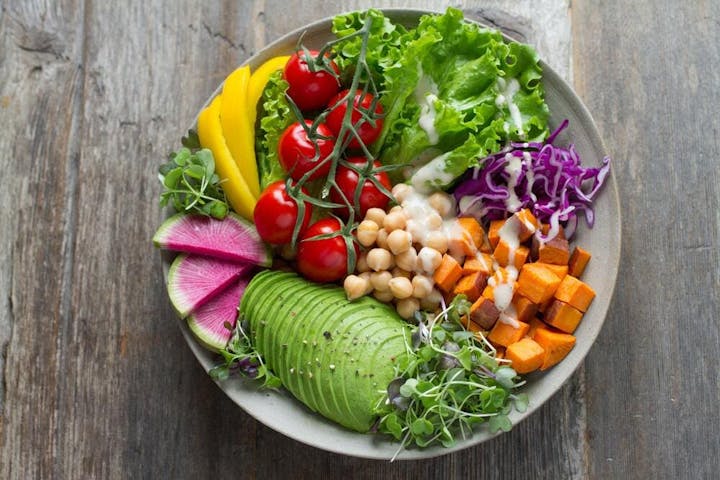A healthy diet is one of the key factors for a more energetic and vibrant life. Most people are aware that eating an adequate amount of vegetables, preferably organic ones, forms the foundation of a healthy eating pattern. However, the quantity of vegetables that many of us consume varies significantly. Therefore, we answer the question: How many vegetables per day do you need?
How many grams of vegetables per day?
For optimal results, it is recommended to consume at least 500 grams per day. However, research shows that most people struggle to reach 200 grams per day. In this article, we’ll show you the benefits of paying more attention to this aspect and share tips on how to incorporate more vegetables into your daily meals!

Positive effects of sufficient vegetables
When you start consuming 500 grams of vegetables per day, you will quickly notice the positive effects. It positively influences your mood, energy levels, digestive function, and even results in a radiant skin.
Research has also shown that it lowers blood pressure and contributes to a longer life expectancy due to its impact on the cardiovascular system. If you are looking to lose weight, eating vegetables is recommended, as studies have demonstrated its significant influence on belly fat reduction. Moreover, it has a positive effect on hormone balance, making it easier for the body to eliminate toxins.
Vegetables are rich in vitamins, minerals, and fibers, which promote healthy digestion, metabolism, and fat burning. They boost the immune system and provide essential nutrients to support a robust defense against illnesses.
Variety of vegetables and tips
We highly recommend varying your vegetable choices as much as possible. There is an abundance of vegetable types, and the more colors you add to your diet, the better. Additionally, experimenting with various vegetables will prevent you from getting bored!
While most people tend to consume vegetables primarily during dinner, a useful tip to incorporate more vegetables is to add them to different meals.
Try starting your day with a vegetable smoothie. For example, you can blend spinach, celery, and ginger with some frozen mango for a delightful breakfast shake!
Another delicious option is combining beets with mango and pomegranate seeds. Of course, a vegetable omelet for breakfast is also a great idea.
During lunch, you can experiment with salads, stir-fried vegetables, or hearty vegetable soups. Vegetables can also be excellent snacks; cucumber, celery, carrots, radishes, or cherry tomatoes are fantastic vitamin sources. You’ll quickly notice that consuming more vegetables throughout the day leads to a more satiated feeling, reducing the temptation to reach for sugary snacks.
Another tip: Get creative with vegetables you enjoy. By blending different vegetables together in a blender, you can easily meet your daily requirement. Moreover, raw vegetables retain their enzymes, providing even more nutrients. This principle can also be applied to making delicious soups.

Need assistance with your diet?
Could you use some help adjusting your eating habits? Let your physiotherapist or personal trainer know, and our new nutrition coaching services might be just right for you!

